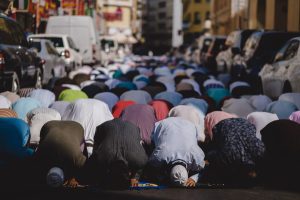UAE Population 2020
The population of the United Arab Emirates (UAE) is estimated to be 9.3 million people as of 2020. This makes the UAE the second-largest population in the Arab world after Egypt. The large majority of the population is made up of expatriates, with over 80% of the population being foreign-born.

The UAE is a federation of seven emirates, each with its own ruler. The emirates consist of Abu Dhabi, Ajman, Dubai, Fujairah, Ras al-Khaimah, Sharjah, and Umm al-Quwain. The national capital is Abu Dhabi, and it is the largest of the seven emirates, with a population of almost 2.9 million people.
The population of the UAE has grown rapidly in recent years, due in part to the influx of people from other countries. The UAE is a major destination for expatriates, particularly from India, Pakistan, the Philippines, and other parts of Asia. Many of these expatriates come to the UAE to seek employment, but some are also seeking to start a new life or take advantage of the country’s growing economy.
The official language of the UAE is Arabic, but English is widely spoken, particularly in the business and tourism sectors. English is also the language of instruction in many schools.
The population of the UAE is predominantly Muslim, with around 96% of the population being Sunni Muslim and 4% Shia Muslim. Islam is the official religion of the country and is observed by the country’s laws and regulations.

The majority of the population lives in urban areas, with around 80% of the population living in the cities of Abu Dhabi, Dubai, Sharjah, and Ajman. These cities are home to some of the world’s most iconic buildings, such as the Burj Khalifa in Dubai and the Sheikh Zayed Grand Mosque in Abu Dhabi.
The population of the UAE is young and rapidly growing, with the median age being around 30 years old. Around 43% of the population is under the age of 25, and the population is expected to continue to grow in the coming years.
The UAE has a high standard of living and is one of the wealthiest countries in the world. It has a diversified economy, with the main sectors being oil and gas, finance, tourism, and real estate. The country’s economic growth has been impressive, with GDP per capita increasing from around $15,000 in 2000 to over $62,000 in 2020.
The UAE is a safe and secure country, with a low crime rate and a strong focus on security. The UAE has also been ranked among the most welcoming countries in the world for expatriates, with a high degree of tolerance for different cultures, religions, and nationalities.
Overall, the population of the UAE is expected to continue to grow in the coming years and is projected to reach around 10.5 million by 2030. This growth is largely due to the influx of expatriates, and the country’s focus on economic growth and development. With its strong economy, high standard of living, and welcoming attitude towards expatriates, the UAE is a great place to live and work.

At the End
The emirates consist of Abu Dhabi, Ajman, Dubai, Fujairah, Ras al-Khaimah, Sharjah, and Umm al-Quwain. The majority of the population lives in urban areas, with around 80% of the population living in the cities of Abu Dhabi, Dubai, Sharjah, and Ajman. The UAE has also been ranked among the most welcoming countries in the world for expatriates, with a high degree of tolerance for different cultures, religions, and nationalities.
#world #be #emirate #long_time #emirates #exile #dhabi #uae #universe #old_age #about #country #years #state #worldpopulation #approximately #year #expatriate #abu #populace #days #being #expatriates #population #organism #area #around #earth #million #nation



